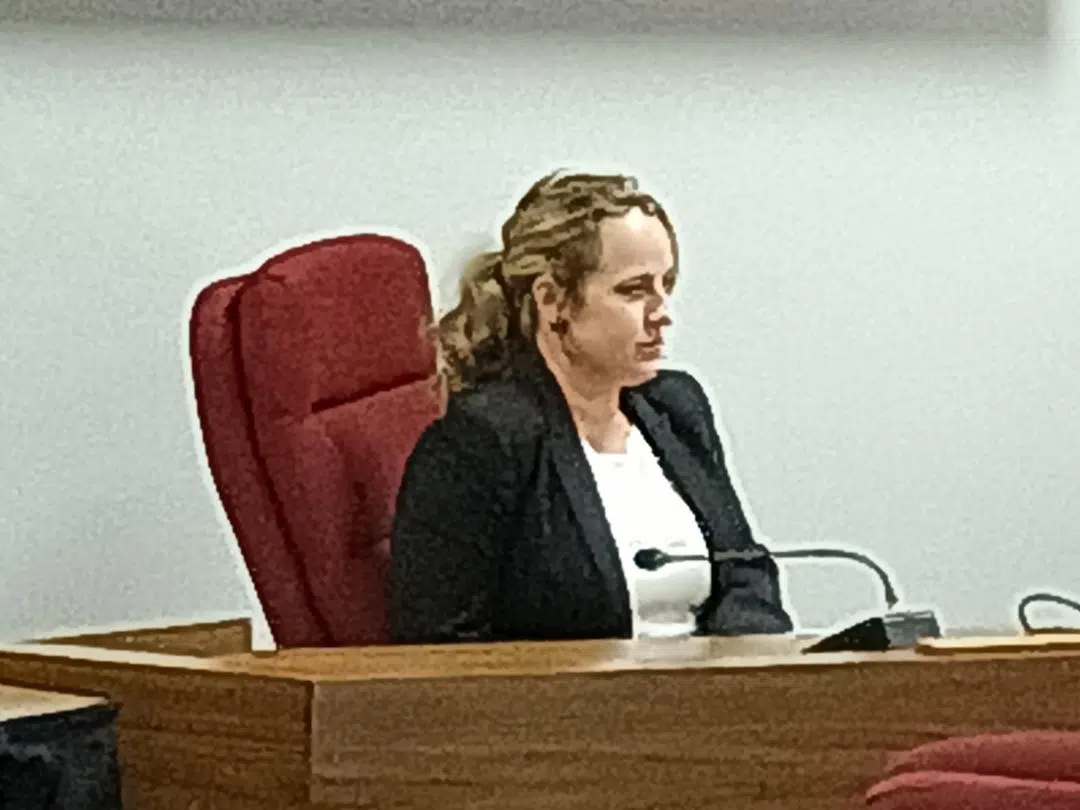No changes will take affect in McLean County Courts on January 1st related to the Safe-T Act due to a court decision on Wednesday. The Pre Trial Fairness Portion that referred to the end of cash bail in Illinois is in question after Kankakee County Circuit Court Judge Thomas W. Cunnington ruled the state legislature “improperly attempted to amend the (Illinois} Constitution,”
Cities 92.9 spoke with McLean County States Attorney Erika Reynolds on Friday and she told us, “In McLean County the status quo remains as far as the procedure. Everything we have been doing up to this point will stay exactly the same come January one.”
Reynolds filled us in on the court case that Judge Cunnington ruled on this week telling us, “There were multiple counties, all the counties within this circuit, that joined in that lawsuit; Woodford, Ford, Logan Livingston and us were all part of that lawsuit and so it applies to us.”
McLean County was not on the team that presented the case but was one of the main offices that participated in pointing out issues and revising briefs. Kankakee County States Attorney James R. Rowe led the team which was comprised of states attorneys from Will, McHenry, Vermilion, Kendall and Sangamon counties. 65 counties were part of the suit.
The plaintiffs argued their case based on 6 points. Cunnington agreed with the plaintiffs on four points and was able to rule in favor of the plaintiffs on three of them. He found the Pre Trial Safety Portion of the Safe-T Act (no cash bail) unconstitutional based on Separation of Powers, Bail Provisions and Crimes Victim’s Rights in the Illinois State Constitution.
Regarding Separation of Powers Reynolds said, “The legislators were taking away the judge’s authority to do certain things. She also explained, “That was tied in with the Bail Provisions of the Illinois Constitution.” The constitution requires that bail is applied to certain individuals under certain circumstances. The act eliminated that entirely. So we argued that was a violation of the Illinois Constitution”
The Crimes Victims Bill of Rights was added to the Illinois State Constitution by an amendment voted on by the people within the last 10 years. “The voters in Illinois voted to have protections for victims,” Reynolds pointed out.” Victims have a “right to have their safety considered and determining the amount of bail is specified in the constitution. And that language is clear and the court found that the act violates that provision.” she said.
Reynolds expounded on victims rights saying, “The problem is under the Safe-T Act, unless it is a detainable offense, the victim’s safety is not a consideration. And one of the issues that we had in this litigation was that the governor (JB Pritzker) and the AG (Attorney General Kwame Raoul) took the position that no misdemeanor can be detained under any circumstances, which is the opposite of what they politically said during the campaign. They indicated that any victim’s safety would be able to be considered and no dangerous criminal would be out walking the street, which just is patently false compared to what they were saying in the litigation.”
Reynolds continued, “In the litigation they were saying that only felonies can be detained because they knew of the concerns regarding the constitution for detaining somebody on a misdemeanor indefinitely was going to be raised. They knew of those issues so they claimed that only felonies could (result in detainment) and as a result under a domestic violence case or a violation of order of protection which typically are misdemeanor cases, safety is not a consideration. In fact there is no scenario under which we would ever be able to detain these people if the governor had his way in the litigation.
We asked Reynolds about her thoughts about Raoul’s statement where he said, “Although the court’s decision is binding in the 65 cases that were consolidated in Kankakee County, it is important to note that it is not binding in any other case, including those involving criminal defendants in any of the state’s 102 counties.”
Reynolds responded, “I think there is some confusion about the application of something being unconstitutional. There are two separate ways that you can get to that. (One is) by challenge which applies to a particular defendant. That would be a defendant coming to the court and saying this is constitutional as it applies to me because here I am a domestic violence offender and I am being held indefinitely on a misdemeanor charge and the constitution says I can’t be.”
“And then there is the other challenge which would be the facial challenge which is what we filed,” Reynolds continued. “And the facial challenge makes the entire thing unconstitutional and I don’t understand really where he is getting that analysis because there would be no point in us even filing the lawsuit if that was accurate.”
“My understanding is from speaking to other circuits is that they would be anticipating not going forward with the Safe-T Act provisions on January 1 if they were a party to this lawsuit,” Reynolds said.
Given an opportunity to get her message out Reynolds told us, “One of the issues that I have found incredibly frustrating is even in a meeting with the AG the other day the emphasis was on encouraging defendants to utilize their rights that were bestowed upon them under the Safe-T Act. And two months ago the argument was well we don’t want violent offenders getting out because we want to protect victims and it was all about victims when they are taking a completely contrary view in the litigation.”
Reynolds continued, “That’s been incredibly frustrating from our standpoint because we knew publicly we couldn’t say anything because of the pending litigation. But our primary concern is victim safety and community safety. This community deserves better and they deserve for this to be a transparent process. Never should legislation overhauling the system be passed in the dead of night with absolutely no opportunity for he legislators to read it in order to have an informed vote on it. And as a result this is what we got. The reason it was passed in that manner I am sure you can draw your own collusion from.”
“But that has been incredibly frustrating and if the legislators want this to happen then they need to go to the voter and ask permission. Because the voter is who holds the power here and it was wrong of them to try to take it away from us. And it’s wrong of them to go in front of the voter and claim one thing and then in litigation claim an entirely different thing,” Reynolds concluded.







